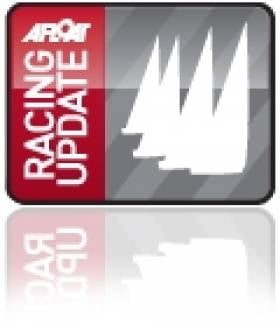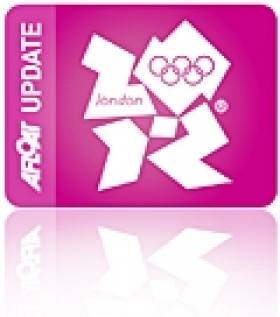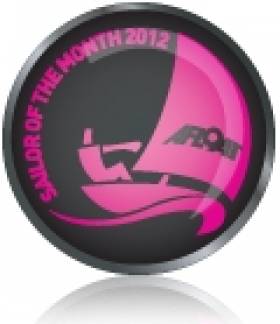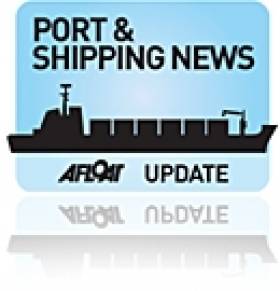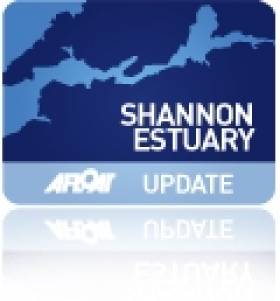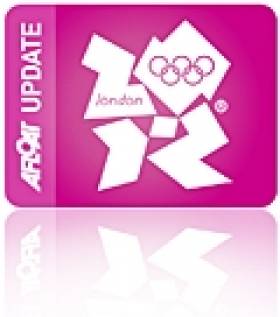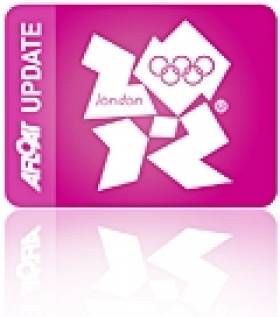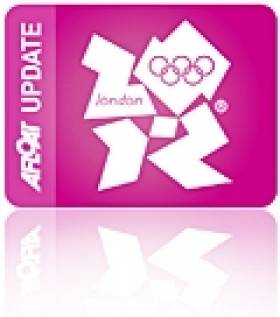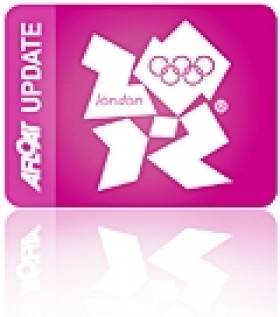Displaying items by tag: London 2012
Weymouth & Portland National Sailing Academy Thrives as Venue for National Sailing Championships
#weymouth – Weymouth and Portland National Sailing Academy has had an outstanding summer one year on from being the host venue for the London 2012 Olympic Games. The Academy has been the chosen venue for many National Championships this summer, thriving in the wake of the Olympics.
The Flying Fifteen National Championships, Topper National Championships, Miracle Nationals, Hurricane National Championships, and also World Championships including the Dragon fleet and the RS Tera Fleet, have all relished the facilities of the Weymouth and Portland National Sailing Academy.
The UK GLOBAL Flying Fifteen National Championships kicked off the summer with their National Championships in July, where 40 boats competed, including visitors from France and Australia. Richard Jones, Flying Fifteen Publicity Officer commented, "The event was a great success and the Flying Fifteen Class thoroughly enjoyed sailing in the wake of Olympic champions."
WPNSA also welcomed one of Britain's most traditional sailing classes, the Miracle Class, for their National Championships in August, with 10 races held over 6 days at the Academy. Sam Meetam, Championship Co-ordinator commented, 'The venue caters well for a traditional class, the facilities are excellent and the choice of bay or sheltered harbour suits well, the venue has an excellent reputation for race management, and they provided perfect set courses for the fleet.'
The RYA Zone Championships took place from the 28th – 29th September. Chris Atherton, Royal Yachting Association, High Performance Manager for the South and South West spoke about the conditions at the Academy. "The sailing inside Portland Harbour offers good, fair racing where the conditions are not too tidal, which is ideal racing for junior sailors for many of whom the 2013 RYA Zone and Country Championships will be their first major event on the RYA Racing circuit."
Many top International Sailing Classes have reserved dates for 2014 National Championships, and key dates for next year at Weymouth will be released in December.
Peter Allam, Chief Executive of WPNSA, is ensuring a sustained approach to attracting important national based events to the Academy on an annual basis, "The Academy has been graced with some very high profile global regattas, which is extremely pleasing. Our on-going ability to host major events for junior and youth sailors is an extremely important role for the Academy. We are very proud to play a part in the development of UK sailing talent and are privileged to witness the progress made as young sailors move from Zone Squads on up through the ranks."
Weymouth (WPNSA) Celebrates One Year Since the Games
#london2012 – As the Olympic and Paralympic Games venue for sailing; the Weymouth and Portland National Sailing Academy in Dorset has experienced a unique and unforgettable few years in the run up to and during the London 2012 Olympic Games. Now that the Games are over, and the Olympic legacy is in full swing, this is the time to look back and reflect on the pre games training and preparation which enabled our British Olympians to compete on a global level.
With fantastic results achieved in 2012 and an impressive collection of gold medals being won and presented to the world's top sailors at the iconic waterside venue, it is easy to be swept along in the celebrations and forget the hard work and pure dedication that went into preparing not only the venue, but the competitors themselves for the greatest show on earth.
The celebrated sailing destination began helping create Olympic champions years before the words Beijing and London Olympics had been uttered. Developed to take advantage of some of the best small boat sailing waters on the planet, the WPNSA has provided an unrivalled location for training and sailing competitions for a great number of years. The combination of clean winds, sheltered waters and weak tides in the area is unique, and the world class facility set in the centre of the Jurassic Coast provided the perfect training venue in the run up to the Olympic Games.
The success of the WPNSA began early when it became the first 2012 venue to be completed and with 3 years to spare. Completed in November 2008; the Academy played a crucial part in the overall success of the London Olympics 2012, and the number of medals the British Sailing Team won. The British Sailing Team finally won a total of 5 Olympic and 2 Paralympic medals in the waters of the Academy; including 2 gold, 4 silver and 1 bronze. The impressive medal haul illustrated how the preparation of the sailors at the Academy had been essential to their final results.
However, the Academy had been assisting preparation of Olympic sailors for many years prior to the Olympics; having had the honour of witnessing and nurturing the emerging talent of young British sailors as they undertook their training schedules and entered into the competitive, and then professional sailing world. One such young sailor was the now Sir Ben Ainslie CBE, the most successful sailor in Olympic history. Ainslie began sailing in the waters of his native Cornwall at a very young age and would later be a frequent visitor to the WPNSA, undertaking his Olympic training at the now iconic venue.
Ainslie pays his compliments to the Academy: "WPNSA is home to some of the best sailing waters in the world and there is tough competition to gain this status. The highest profile sailors in the world have competed at WPNSA and the venue itself has showcased one of the most watched global events. I have sailed on these waters since I was racing youth classes and the WPNSA is a great improvement upon the facilities I used back then. The new generation getting out on the water have a very bright future and a first rate sports venue readily available to them that represents such a great opportunity. I have no doubt the venue will go on to host a raft of quality sailing events as it is now firmly on the map as a premiere location to compete. Personally I will never forget winning my Olympic Gold medal in front of a home crowd and on waters so familiar to me."
Now also a member of the Board of Directors for the WPNSA, Ainslie will continue to play a role at the centre which supported him throughout his sailing career and Olympic campaigns. He is not the only Gold medallist to sing the praises of the Weymouth and Portland National Sailing Academy, as Paralympic Gold Medallist Helena Lucas MBE also trained from the Academy for a number of years before and during her Olympic campaign. Lucas won gold in 2012 in the 2.4mR event.
Lucas has great compliments for the WPNSA: "Winning gold on home waters in Weymouth and Portland was an amazing experience, the home support is something I will never forget and it spurred me on tremendously. Training and competing at WPNSA throughout my preparation certainly contributed to my result and I will always love sailing here. The Weymouth and Portland National Sailing Academy is an unbeatable venue for disabled sailors with new, purpose built, facilities. For example, there are disabled access hoists on the pontoons, providing the safest access to tidal waters for people with disabilities anywhere in the UK. I don't know of any other sailing venue where the needs of sailors of all abilities are so well catered for."
Sir Ben Ainslie CBE and Helena Lucas MBE are two fantastic sailors who will now be forever known as champions in their sport; they both praise the WPNSA for the quality of its facilities for disabled and able bodied sailors and the fantastic waters which surround the venue. A combination of which, led to outstanding results from the British Sailing Team in the summer of 2012.
Nevertheless, it was not only Team Great Britain who performed outstandingly during the sailing Olympics and Paralympics; with competitors from across the globe winning medals in British waters. A key to the success of both the British Olympic and Paralympic sailors and the international sailors was the ability for them to access and train in the Olympic waters before the Games began; reaping the benefits of this fantastic advantage. The Weymouth and Portland National Sailing Academy was the first Olympic sailing venue to open to international competitors prior to the Games since Kiel in 1972; by operating in such a way this created a level playing field for competitors, with the final sailing competition higher than ever.
During this period WPNSA hosted sailors from Italy, USA, Canada, Australia, Spain, Sweden, Holland, Argentina, Denmark and Russia to train at the Academy pre Games. Having these teams on site, some of which were for a number of years prior to the Games, brought a great international feel to the Academy and the wider Weymouth & Portland area.
The Australian Olympic Sailing Team commented: "We spent a lot of time at WPNSA in the years leading up to the Olympic Games. The ability to train from and familiarise ourselves with the Olympic venue as we prepared for the Games was a definite plus. The setup there was great and easy to operate from, the facilities are second to none in the UK and the people were always friendly and helpful."
The WPNSA played a truly essential part in training and assisting all Olympic and Paralympic sailors in both the 2012 Games and in the years leading up to the event; without the Academy, its excellent facilities and second to none waters the British Sailing Team may not have achieved such admirable results.
Annalise Murphy is Irish Sailor of the Year for 2012
#sailoroftheyear - You followed her impressive exploits right here on Afloat.ie throughout the year, and your votes counted. So it's only right that our Olympic sailing hero Annalise Murphy should receive the honour of being named Afloat.ie Sailor of the Year for 2012.
The young sailor was recognised for a remarkable 12 months of incredible achievement, capped off by her stirring performance at the London Olympics - and topped a shortlist that featured fellow Olympic challengers Peter O'Leary and David Burrows, and such up-and-coming talents as Sophie Browne, Finn Lynch and Fionn Lyden.
Murphy's simply outstanding fourth-place finish in the Laser Radial at the London Games was Ireland's best Olympic result in 30 years in any class. Despite the heartbreak of so narrowly missing out on Olympic bronze in the medal race, her accomplishment was appreciated far beyond the Irish sailing community, and raised the profile of the sport in Ireland immeasurably.
The then 22-year-old, who sails for the National Yacht Club in Dun Laoghaire, had the entire country on edge last August as she battled with what Afloat's own WM Nixon described as the "fierce challenge" of being top of the Women's Laser Radial class, in stature as well as performance.
At 6ft 1in, the woman they call 'The Irish Lever' was undoubtedly the tallest in her 41-boat fleet at London 2012, and some British yachting pundits were quick to put down her early regatta wins purely to her larger frame.
But Murphy - who headed to the Olympics with confidence after a podium finish at the Skandia Sail for Gold, and a medal at Weymouth the previous year - proved that her success was no fluke, holding the gold medal position for almost half the regatta and entering the last race in third place overall.
Facing unbelievable pressure as the regatta reached its final stages on the Nothe course in Weymouth, in tricky conditions that would spread wide the times of most club racers, it's to Murphy's estimable credit that she was able to keep so tight with the front-runners, and it was only in the last few seconds - and last few metres - that she was knocked out of the bronze position.
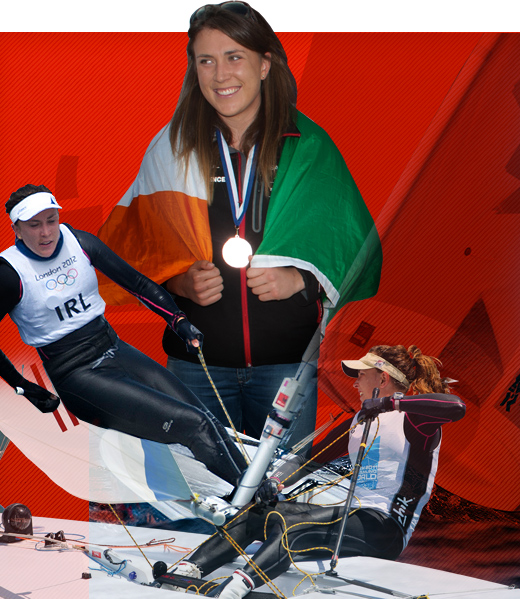
We'll never forget the tears she shed after the medal race's conclusion - the whole of Ireland shared in her heartbreak. But we also shared the belief that that was but one setback in a world-class sailing career that's only just beginning.
Considering the talented and dedicated NYC sailor and UCD student is still only 23, there's clearly plenty of sailing success awaiting in her future, and she starts 2013 on her 'Road to Rio' aiming to clinch a medal at the 2016 Olympic Games.
In spite of losing out on a podium finish at the ISAF Sailing World Cup in Miami earlier this month, the fact that she came so close - and led the charge in the early stages - proves that she can stand proudly with the elite in her class. And she'll have another chance to prove herself in the next round of the ISAF World Cup in Palma de Mallorca on 30 March.
The Sailor of the Year honour is the very least the amazing Annalise Murphy deserves for doing Ireland so proud in 2012.
#PORTS & SHIPPING REVIEW - Over the last fortnight, Jehan Ashmore has reported from the shipping scene, where a brand new multi-purpose heavy-lift vessel Abis Dublin made her maiden 'Irish' call to her namesake port carrying wind-turbine components.
In this year of The Gathering, Dublin Port is to welcome a record number of cruiseships, with more than 100 calls this season to include several new operators.
The fleet of Irish Ferries vessels are taking turns to undergo dry-docking maintenance at the Cammell Laird facility in Birkenhead, where French routes cruiseferry Oscar Wilde is due next month.
The tug that 'righted' the Fastnet Race entrant Rambler 100 in west Cork in 2011, had recently towed a completely different type of vessel, Skerchi, a construction barge to Dublin Port, where the vessel is currently in dry-dock.
Galway Harbour is to welcome The World, the 41,188 tonnes exclusive ultra-luxury residential passenger ship when she opens the 2013 cruise season in July with a two-night anchorage call.
Having operated 12 days of Christmas service, Stena Line's HSS Stena Explorer is taking a break off-service, however, the fastcraft returns for a second year operating a seasonal-summer only schedule.
Shannon Foynes Port Company's draft masterplan "Vision 2041" is to develop port infrastructure and services of the estuary over the next three decades.
Once again the former Dutch dredger Lough Foyle has been contracted by Drogheda Port Company to carry out work at to the mouth of the Boyne.
An extra 3,000 'coach' passengers will have an opportunity to visit Ireland as part of an Irish Ferries initiative worth up to EUR60,000 to promote the nation to UK and overseas tourists.
London 2012, a 82,562 dwt bulk-carrier which after docking at Auginish on the Shannon Estuary, recently weighed anchor offshore of the world famous Ballybunion Golf Course. At the next Olympics of Rio de Janeiro 2016, golf will return to the Games.
London 2012 Weighs Anchor off World Famous Golf Course
#OLYMPIC SHIP - A 82,562 dwt dry bulk-carrier, London 2012, weighed anchor today having recently docked at the Aughinish Alumina jetty, on the Shannon Estuary, writes Jehan Ashmore.
The Liberian flagged vessel which has a draft of more than 14m had docked at Aughinish, one of six terminals operated by Shannon Foynes Port Co, near Askeaton, Co. Limerick. The facility is where large sized ships can reach by plying the deep waters of the mid-western waterway that has some 500sq km of navigable estuary.
Following completion of operations of London 2012 at the Aughinish terminal, which is the largest alumina refinery in Europe, the vessel departed the jetty dedicated to importing bauxite to the Russian owned RUSAL plant, and proceeded to anchorage beyond the mouth of the Shannon.
The 229m long X 32m beam vessel had anchored some 3 nautical miles offshore of Ballybunion. The west Kerry venue is another place strongly associated with sport through its world famous golf course, situated on a spectacular stretch of coastline overlooking the Atlantic Ocean.
London 2012 and her sister Beijing 2008, belong to a fleet of approximately 70 vessels, totalling a capacity of 8 million deadweight tons (dwt) and are managed by Tsakos Columbia Shipmanagement (TCM) S.A. of Greece.
The Athens based TCM was only established in July 2010, as a joint venture between Tsakos Shipping and Trading S.A. and Schoeller Holdings Ltd, the owner and operator of Columbia Shipmanagement Ltd.
No doubt her Greek owners will make an opportunity for a vessel to continue in the Olympic spirit by sporting the name Rio de Janeiro 2016. As for golf fans, they too can look forward to the return of the sport in these Games.
Star Sailor O'Leary Set to Tie The Knot With Olympian Derval
#Olympics - It was a match made in Beijing - and now four years on, Crosshaven sailor Peter 0'Leary and sprint hurdles champion Derval O'Rourke have announced their engagement, as Independent Woman reports.
The Olympian couple are keeping mum for the time being, but it's expected that they will wed in their home county of Cork.
O'Leary and O'Rourke apparently struck up a companionship at the closing ceremony of Beijing 2008, when both were coming down after disappointing Olympic campaigns in their respective sports.
That first conversation quickly blossomed into a relationship that's clearly done no harm to their improving performances on the track and on the water - O'Rourke reaching the 100m hurdles semi-finals, and O'Leary finishing a respectable 10th in the Star with partner David Burrows.
It's also surely a welcome turn of events for O'Leary especially after a stressful few months following London 2012 that culminated in a warning from the International Olympic Committee over his betting on a competitor at the 2008 Games.
IOC chiefs announced last week that they had "no proof of any match fixing" and agreed that O'Leary was at the time not fully aware of the rules against competitors betting on Olympic events.
The Irish Sailing Association (ISA) has hit out at what it called a "malicious campaign" against the Star helmsman, noting that the facts present a very different picture from the story that circulated in the media on the eve of his opening race at Weymouth this summer.
Irish Paralympic Sailors Stay Tenth in Weymouth
#paralympic – Irish paralympic sailor John Twomey and his crew placed 10th in Race 5 and 10th in Race 6 in a difficult day afloat in Weymouth today.
The Irish crew finished Day 3 maintaining their position of 10th overall with a further five races left to sail.
The scheduled morning racing had to be postponed for several hours as Portland Harbour was flat calm. Racing finally began for the Sonar class at 2pm in 7 knots of breeze.
No Medal Race for Irish 49er Campaign
#49er – Ireland's 49er Belfast skiff campaign has ended without the much hoped for medal race participation.
Today's last day of fleet racing was Ryan Seaton and Matt McGovern's last opportunity to hold on to a top ten position before next Wednesday's medal race.
The pair were tenth overall heading in to Race 14 but only four points separated them from 13th place. Seaton and McGovern finished in 16th which saw them drop to 11th overall. Sadly Race 15 had an equally frustrating ending, seeing the pairing finish in 16th and 14th overall ultimately ending their dreams of racing in the medal race.
Annalise Loses Out on Medal in Thrilling Olympic Finale
#Annalise_murphy – There was Olympic heartbreak for Annalise Murphy on one of the toughest race courses today when the 22–year–old Dun Laoghaire sailor finished fourth overall but only after a tense four way battle saw the Irish Olympic debutante lose out in the final moments of the 50 minute medal race.
The downwind finish was ultimately a tough leg for one of the biggest girls in the fleet. Nevertheless the sporting moment provided not only sailors but the entire country with a great lift when the Irish girl arrived in gold medal position at the first windward mark.
"Hard luck Annalise. You did us proud. Seeing the tricolour come around the first mark in gold medal position was as good as Packie Bonner's save or Dave O'Leary's penalty at Italia 90", wrote one reader on Afloat.ie
Murphy finished the race fifth to be fourth overall. Though there is no Irish medal it is Ireland's best Olympic sailing result in 32 years. Understandably that will be of small consolation to an emotional Annalise in Weymouth this afternoon.
Ashore after racing Annalise said "Coming fourth was definitely the worst result. "I kept losing out downwind because I kept going left downwind and there was less wind. Things just didn't work my way".
"I'm only 22. I'm going to work so hard and be back for 2016", a tearful but positive Annalise said.
In a set of conditions that could not have been more different to those that blasted Annalise into the lead of the Olympic regatta last week, Ireland's Annalise set sail on her final voyage for Gold in Weymouth in 12 knot westerlies and sunshine.
Going in to the medal race Annalise was third overall on 34 points with arch rival Van Acker from Belgium. The lead was held jointly by Liljia Xu and the world champion Marit Boumeester both on 33 points. Paddy Power bookmaker gave odds of 11/4 to Annalise. Boumeester was on 9/4, Liljia Xu 5/2 and Van Acker 11/4.
A tense four-way battle loomed as Ben Ainslie's girlfriend Marit Boumeester of Holland, the reigning radial world champion went for a matching Gold medal.
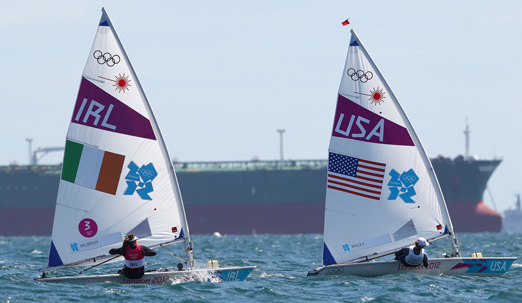
Annalise chases bronze medal position in the medal race today. Photo: Richard Langdon
Annalise had a mid line start in the stable 12 knot breeze and her upwind speed was clear to see. The Irish girl rounded the weather mark first but China's Lijia Xu quickly passed her on the run. Annalise appeared slow downwind, dropping eight places by the first leeward mark.
China rounded ahead of Holland's Marit Bouwmeester going into the second lap of the race. The other contender Van Acker of Belgium was last with Annalise in seventh place.
But by the top of the second weather mark Annalise was back in silver medal position again storming upwind just behind China with Van Acker on her heels in third having gained on the right.
But Annalise dropped back again on the second run. Boumeester motored down the run into second for the last lap, pulling the rabbit out of the hat downwind.
Annalise rounded the leeward mark for the second time fifth and out of the medals. But on the final upwind leg Annalise was again back in contention. The Dun Laoghaire sailor and Van Acker dueling for Bronze as Xu and Boumeester fought for gold and silver.
One thing was for sure, the Nothe course was never boring with places changing on every leg in the 12-14 knot winds.
On the final downwind leg Annalise was in bronze medal position with Van Acker two boats behind in sixth.
All four sailors from all four nations were neck and neck in the last few moments of the race. Thirty seconds or so separating the top five boats. Crafty Van Acker sailed back in to contention catching a series of good gusts leaving Ireland with Olympic agony just metres from the finish line.
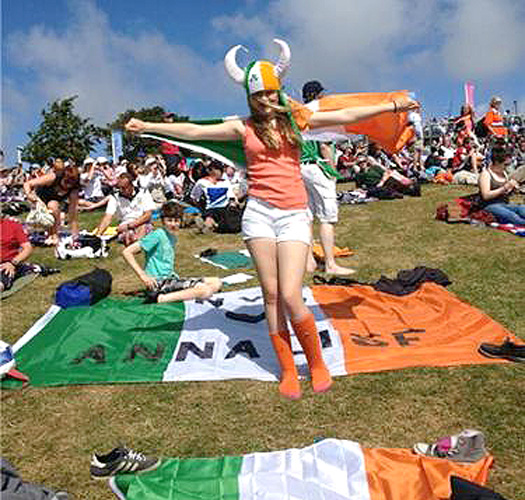
Irish fans were out in force in Weymouth, 'Annalise's army' positioned right in front of the Nothe course. Photo: Finn Murphy
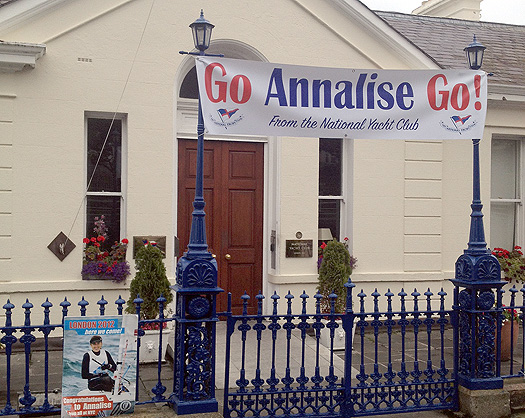
Annalise's club, the National Yacht Club on the East Pier in Dun Laoghaire, had the bunting out for today's medal race and her sailing students were jumping for joy all week. Photos: Michael Chester
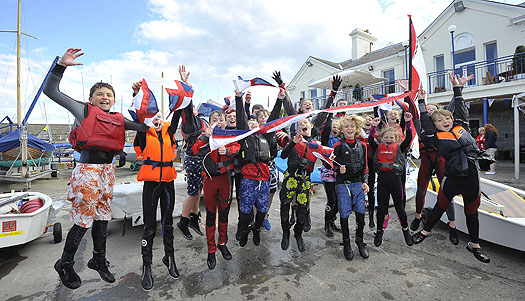
O'Leary & Burrows Finish Tenth in Final Olympic Star Race
#peteroleary – Peter O'Leary and David Burrows have produced Ireland's top Star class result at the London 2012 Olympics but it will be small consolation for the pair who won gold at the pre-Olympic regatta just six weeks ago.
O'Leary finished 10th in the medal race and 10th overall, eclipsing Mark Mansfield's 12th at the Atlanta Olympics in 1996 also crewed by David Burrows.
The regatta represented the final regatta for the 20 foot design after a 100 year stint as an Olympic class bringing an end the mens keelboat category.
The Cork-Dublin pair were 9th overall beginning the medal race this afternoon but due to their points on the leader board, they were not in contention for a medal.
Sweden's Fredrik Loof and Max Salminen won the Star Medal Race to upset the favourites and take the gold medal.
Having trailed overnight leaders Iain Percy and Andrew Simpson (GBR) by 12 points ahead of the Medal Race the Swedes won by four seconds over Hamish Pepper and Jim Turner to overcome the Brits who finished eighth.
The Brits had to finish sixth or better to guarantee gold but in a tense final run Norway's Eivind Melleby and Petter Morland Pedersen, America's Brian Fatih and Mark Mendelblatt and Brazil's Robert Scheidt and Bruno Prada finished less than two seconds ahead of the Brits squeezing them into eighth and down into silver medal position. The Brazilians subsequently fell into bronze medal position.
Final top three:
1. Fredrik Loof and Max Salminen (SWE) - 32pts
2. Iain Percy and Andrew Simpson (GBR) - 34pts
3. Robert Scheidt and Bruno Prada (BRA) - 40pts
The ISA's James O'Callaghan said "While it is the best result Ireland have achieved in the Star class it is still disappointing. We came here hoping to be fighting for a medal. That plan has not worked out in a way we could have foreseen".



























